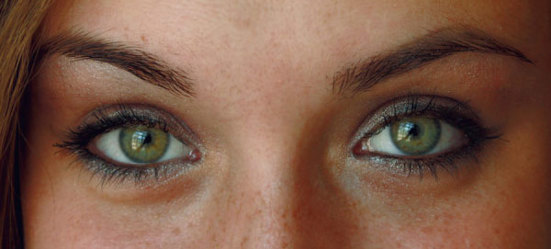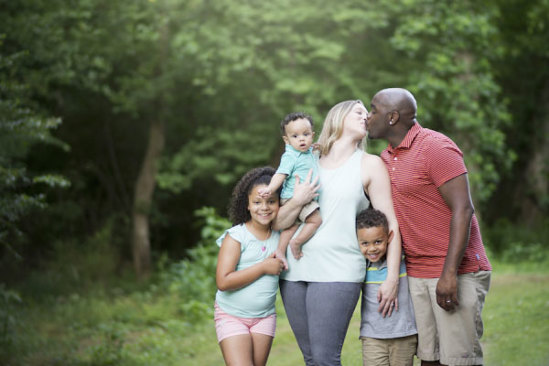
Is eye color connected to hair color?
May 7, 2018

- Related Topics:
- Eye color,
- Hair color,
- Pigmentation traits
A curious high school student asks:
Yes, it is! You might also notice that people with brown hair typically have brown eyes. Skin color also often fits in this trend: people with lighter hair and skin often have light eyes. And people with darker hair and skin usually have dark eyes.
The color of our hair, skin, and eyes is determined by the same thing: the amount of pigment they have. The pigment that causes dark hair, skin, and eyes is called melanin.
Melanin is made in special cells in the body called melanocytes. If your melanocytes produce a lot of melanin, you’re likely to have darker skin, hair, and eyes. If your melanocytes don’t make much melanin you’ll have lighter color skin, hair, and eyes.
But you asked about blue eyes specifically, not just light-colored ones. Well this gets into why we only see brown, blue, and green eyes (typically). Click here to learn more about some rare eye colors.
Where does the blue color come from?
The iris of your eye (the colored part) is where melanin can be found. People with dark eyes have a lot of melanin in their iris. This dark melanin pigment makes the eyes look brown. And since melanin can absorb light, they look even darker!
But what about blue? Your eyes can’t make a blue pigment, so why do we see different colors?
It turns out blue eyes aren’t actually colored blue! This is the same way that the sky and water aren’t actually blue, even though it appears that way to us. This blue color is made by light scattering when it hits blue eyes (or the sky or ocean!).

Eyes with no melanin scatter all the light, making them appear blue.
An iris with a lot of melanin absorbs light, making it appear darker. And an iris that has some melanin will absorb some light and scatter the rest, making it appear green.

Genes can be linked together
There’s another layer to this. The production of melanin is determined by your DNA. We generally talk about different traits as independent. For example, whether you are tall or short does not affect whether you need glasses!
But the genes for eye, skin, and hair color are different. These genes are tightly “linked”, meaning that they’re usually all inherited together. This is why people typically have either all light features, or all dark features. It’s still possible to get a combination of shades of hair, eyes, and skin, but it’s less likely.
You’ve probably noticed that all people in certain regions of the world tend to either have lighter or darker skin, hair, and eyes (complexions). That’s because if two parents have lighter complexions then they will pass on the melanin producing genes that produce only a little bit of melanin.
If two parents have different complexions, these genes can get mixed around a bit.
If one parent has a darker complexion and the other has a lighter complexion, then their children could have a mix of light or dark hair, eyes, and skin.

Imagine if there was a region where most people had lighter complexions. As the population grows and people have babies, the genes for less melanin will become more common. That makes the link between lighter eyes, hair, and skin tighter.
So that’s why you see people with blond hair typically have blue eyes!

Author: Margaret Antonio
When this answer was published in 2018, Margaret was a Ph.D. candidate in the Department of Biomedical Informatics, studying population genomics in Jonathan Pritchard’s laboratory. She wrote this answer while participating in the Stanford at The Tech program.
 Skip Navigation
Skip Navigation
